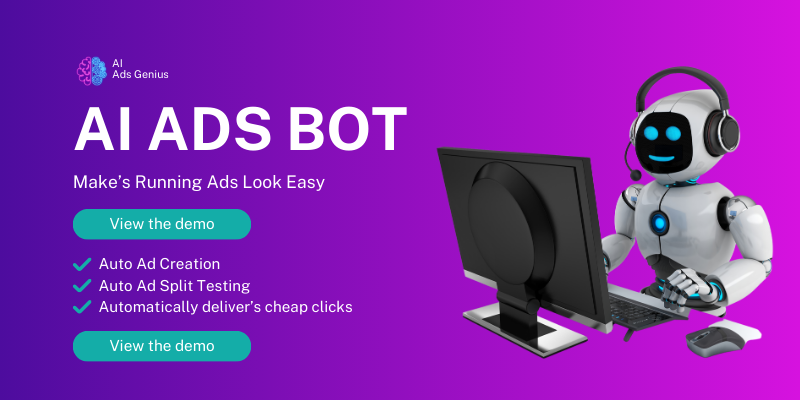Define Your Event Objectives Clearly
Understanding Your Goals
When I first started using Facebook Events for my marketing, I learned that having clearly defined objectives is key. You want to ask yourself, “What do I truly want to achieve?” Whether it’s increasing brand awareness, generating leads, or boosting ticket sales, your goals should drive your strategy. It’s all about setting intentions, folks!
Once I nailed down my objectives, I became much more focused. It’s easy to get swept away in the excitement of planning, but having that clear aim keeps everything aligned. I recommend creating a mission statement for your event as a guiding light throughout the process.
No one wants to throw an event just for the sake of it! Make sure your audience knows what to expect. The clearer we are about our goals, the easier it is to communicate that to attendees, which brings more of the right people to our events.
Create Engaging and Relevant Content
Crafting Your Message
Now, content, my friends, is where the magic really happens. I’ve found that creating engaging content is crucial when developing Facebook Events. It’s not just about throwing around some descriptions and images; you need to tell a story that resonates with your audience. Remember, people connect emotionally before they hop onto any practical decisions!
Your event title and description should spark intrigue. I often sit down and brainstorm what would catch my attention as an attendee. Use vivid language and a bit of flair! Remember, it’s not just information; it’s about creating a vibe!
Include all the elements of good content – headlines that pop, visuals that attract, and a call to action that compels people to get involved. Content worth sharing will organically broaden your reach, and that’s the goal, right?
Utilize Facebook Targeting Features
Segmenting Your Audience
Social media targeting is one of the most powerful tools in our marketing toolkit today. I cannot stress enough how vital it is to target the right audience for your events. Facebook’s targeting options allow you to segment your audience based on interests, behaviors, and even demographics!
When creating your event, I tend to think about who my ideal attendee is. By nurturing niche audiences, I can tailor my ads more effectively. This means better engagement and ultimately, a higher return on investment!
Don’t just blast out your event to everyone! Get specific where possible. One trick I’ve learned over time is analogizing the targeting process to sending out invitations: make sure you are inviting the right people. The more precise you are in your targeting, the more effective your ad campaigns will be.
Encourage Interaction and Engagement
Building a Community
Creating a two-way street has been a game changer for my events. I always encourage interaction before, during, and after events. Running polls or questionnaires leading up to the event keeps the audience engaged and makes them feel part of something bigger.
Your Facebook Event can be like a community hub. Host discussions in your event’s discussion forum. When people feel involved, they’re more likely to show up and participate. I have seen firsthand how organic interactions can elevate the excitement and energy around the event.
Don’t underestimate the power of user-generated content as well! Encourage attendees to share their thoughts or photos related to the event, and feature them on your page. This collaboration enhances connections among participants and boosts your visibility!
Analyze Performance and Optimize Going Forward
Tracking Your Metrics
After every event I run, I dive deep into performance metrics – let’s talk data. Analyzing what works and what doesn’t is essential for future success. Facebook offers numerous analytics tools that can track engagement rates, number of attendees, and much more. Don’t be afraid to get detailed!
I often reflect on questions like: Which ads drew the most engagement? Did certain content formats perform better than others? This ongoing learning mindset will keep your events fresh and appealing!
By iteratively applying what you learn, each event can be even better than the last. This continuous improvement not only benefits your future marketing endeavors, but it also fosters loyalty among your audience, as they will see constant value in your events.
Leverage Event Reminders and Follow-ups
Keeping Engagement Alive
This is often overlooked, but let me tell you, follow-ups can make a huge difference! I always make sure to send out reminders as the event date approaches. A simple nudge can mean the difference between a ‘maybe’ and a ‘definitely’ from potential attendees.
Post-event, a thank-you email or message creates good vibes. It reinforces that community feeling and opens doors for feedback. The more personal, the better. I often include links to photos and videos from the event to keep the energy alive and get people excited for the next one!
Encourage attendees to leave reviews or share their experiences afterward. This not only provides social proof for future events, but it also keeps your brand top of mind. Plus, who doesn’t love feeling appreciated? It’s a win-win for all!
FAQs
1. What is the importance of defining objectives for my Facebook event?
Defining clear objectives helps shape your strategy and guides your marketing efforts, ensuring that everything aligns with what you want to achieve.
2. How can I create engaging content for my event?
Capture your audience’s attention with an interesting title, vivid descriptions, and compelling visuals that reflect the essence of your event.
3. What targeting features should I use on Facebook?
Utilize Facebook’s robust targeting features to define your niche audience based on interests, behaviors, and demographics, focusing your efforts where they matter most.
4. Why is interaction important for my event?
Encouraging interaction helps build a community around your event, increasing engagement and likelihood of attendance.
5. How do I analyze my event’s performance?
Use Facebook’s analytics tools to track engagement metrics and attendee numbers to glean insights into what worked and needs improvement for future events.

